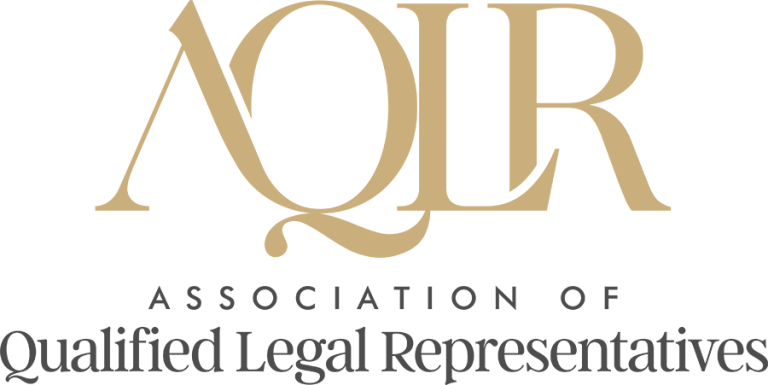We protect the advocate to protect the process.” – AQLR
Together, we uphold justice by upholding each other
1. Purpose and Principles
- 1.1 This Code of Conduct establishes the professional and ethical standards expected of all members of AQLR. It reinforces our commitment to:
- 1.1.1 Upholding justice and procedural fairness for vulnerable parties
- 1.1.2 Maintaining the integrity of court proceedings
- 1.1.3 Supporting QLRs in delivering their court-appointed responsibilities with clarity, competence, and independence
2. The Code applies to all members
“The Code” applies to all members in their capacity as Qualified Legal Representatives (QLRs), regardless of profession or regulatory affiliation.
3. Core Ethical Commitments
- 3.1 Independence and Impartiality. QLRs must:
- 3.1.1 Act solely in accordance with their court appointment — not as legal representatives of any party
- 3.1.2 Remain independent from the prohibited party and all others in proceedings
- 3.1.3 Exercise their professional judgment without undue influence from the parties or court staff
- 3.2 Competence and Preparation
- 3.2.1 QLRs must diligently prepare for all hearings, including cross-examination, using all materials provided
- 3.2.2 Where bundles or appointment orders are missing or delayed, QLRs must take reasonable steps to notify the court and identify issues that may cause delay while documenting any impediments to preparation
- 3.2.3 Cross-examinations must be conducted with trauma-informed sensitivity and relevance
- 3.3 Integrity and Professionalism
- 3.3.1 Maintain decorum and respect toward the judiciary, litigants, colleagues, and witnesses
- 3.3.2 Refrain from engaging in conduct that could undermine the dignity or fairness of proceedings
- 3.3.4 Avoid conflicts of interest and disclose them promptly when identified
4. Scope of Role
- 4.1 Clear Limits
- 4.1.1 As defined in statutory guidance, the QLR is not:
- 4.1.1.1 A legal adviser or case manager for the prohibited party
- 4.1.1.2 Required to prepare bundles or conduct broader advocacy outside the cross-examination appointment
- 4.1.1 As defined in statutory guidance, the QLR is not:
- 4.2 Representation During Hearings
- 4.1.1 Attend court in accordance with appointment even when appointment orders are delayed, where reasonably possible
- 4.1.2 Assert role limitations respectfully when judicial misunderstandings arise
5. Fair Working Conditions
- 5.1 AQLR recognises systemic challenges facing QLRs. Members must:
- 5.1.1 Raise structural barriers (e.g., delayed payments, unclear roles) through AQLR’s official channels
- 5.1.2 Support peer QLRs through networking and collaborative practice forums
- 5.1.3 Not accept conditions that pose professional liability or compromise statutory duties without recourse to AQLR support
6. Confidentiality and Data Protection. Members must:
- 6.1 Treat all personal data and court documents as confidential and secure
- 6.2 Avoid using client-identifiable information in public or online forums
- 6.3 Comply with applicable data protection legislation including GDPR
7. Respect Within the Profession. Members should:
- 7.1 Foster a culture of mutual respect and cooperation among QLRs
- 7.2 Offer assistance, especially to newly appointed colleagues, in navigating practical and ethical challenges
- 7.3 Refrain from criticism that undermines another QLR’s
8. Breach and Accountability
Breaches of this Code may be reported to the AQLR Ethics Committee and may result in:
- 8.1 Informal guidance or peer support
- 8.2 Suspension of membership privileges
- 8.3 Referral to the relevant professional regulatory body where appropriate
9. Affirmation
All members must annually confirm their understanding of and commitment to the AQLR Code of Conduct.
